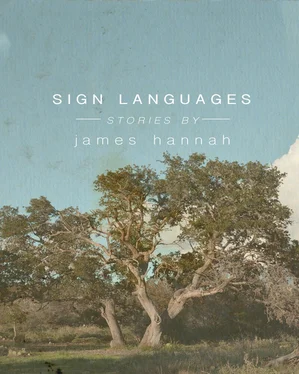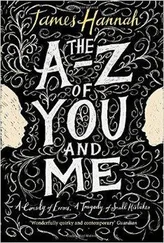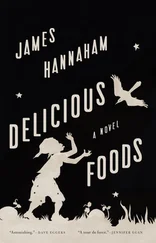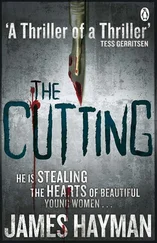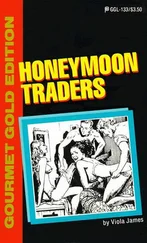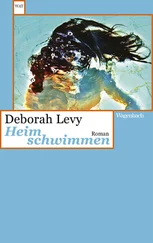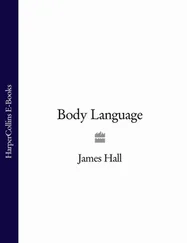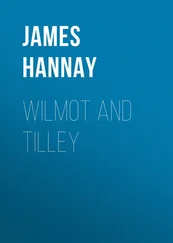James Hannah - Sign Languages
Здесь есть возможность читать онлайн «James Hannah - Sign Languages» весь текст электронной книги совершенно бесплатно (целиком полную версию без сокращений). В некоторых случаях можно слушать аудио, скачать через торрент в формате fb2 и присутствует краткое содержание. Год выпуска: 2015, Издательство: Dzanc Books, Жанр: Современная проза, на английском языке. Описание произведения, (предисловие) а так же отзывы посетителей доступны на портале библиотеки ЛибКат.
- Название:Sign Languages
- Автор:
- Издательство:Dzanc Books
- Жанр:
- Год:2015
- ISBN:нет данных
- Рейтинг книги:5 / 5. Голосов: 1
-
Избранное:Добавить в избранное
- Отзывы:
-
Ваша оценка:
- 100
- 1
- 2
- 3
- 4
- 5
Sign Languages: краткое содержание, описание и аннотация
Предлагаем к чтению аннотацию, описание, краткое содержание или предисловие (зависит от того, что написал сам автор книги «Sign Languages»). Если вы не нашли необходимую информацию о книге — напишите в комментариях, мы постараемся отыскать её.
Sign Languages — читать онлайн бесплатно полную книгу (весь текст) целиком
Ниже представлен текст книги, разбитый по страницам. Система сохранения места последней прочитанной страницы, позволяет с удобством читать онлайн бесплатно книгу «Sign Languages», без необходимости каждый раз заново искать на чём Вы остановились. Поставьте закладку, и сможете в любой момент перейти на страницу, на которой закончили чтение.
Интервал:
Закладка:
Early the next morning he sent Chan #2 home and had Chan #1 wakened. He took him first to the brass cap and then into the desert. But after ten, and at a distance of a hundred meters, the work didn’t matter. This day proved the hottest of the summer and the intense heat fractured the air between them, twisting the distant rod and maiming numbers and hands. They packed up and turned back toward the village.
At noon he left Chan at the Suburban to square things away, but he took the Gurley to the hotel. At almost one o’clock in the morning, when the bright scimitar moon rose from behind the mountains, the level brought its razor edge down close to his eye. This was something he hadn’t done in years. And the reaction now was the same as then, and he didn’t know why this was. Come see this, he wanted to say. You should come see this.
Half the street below was in darkness; his only companion was the same tethered, restless goat.
HISTOIRE DE MON TEMPS
“Voiture,” I say, listening to the whine of the pickup’s mud tires on asphalt. Know it’s on the ridge behind me, a mile away. I turn my back to the road. Imagine that my weak vision goes far beyond the four-strand barbed-wire fence to the cows I can smell pissing. To the newest calves I hear now in this new early March grass. Up to the hills covered with some oaks but mostly pines Mothermae called “evergreens.”
“Voiture,” I say when the sound changes. Passing over the bridge where the grate opens. I almost piss on myself, my hand cupped in my open overalls. I feel then smell a trickle. Mothermae pulling the chocolate skin back, the head a pink like here, these phlox at my feet. Flocks of sheep, I used to think. I almost turn to look at the coming truck. Voiture I picked up right here against this post. The one I watched them replace the year we spent most of the summer outside when they brought in the hay.
“Hey, look at this. Rudy, look at all this.”
Mothermae and I listened to them from the dry creek that crosses the open fields, the biggest under a cloud of dust from their haying. She held onto my neck, our breaths struggling in both our throats.
“Voiture!” I try to yell, keeping my back to it as it screams past. Make my lips move. The scrap of paper over the stove, stuck to the wall with tacks or spit. English-French, French-English, the other, thicker paper says. “Voiture!” I scream as I face the empty road that goes uphill, crosses the bridge, and climbs to the straight green line of pines. “Evergreens.”
“Hobo camp,” Rudy had said. A big blond man catching the light. His bare chest yellowed even more by pieces of hay. I could see the flecks of dirt muddied at his neck. Mothermae’s face turned away. I saw them through the broken window. They tossed it all out but left our scraps of paper on the walls. Then, later, a day and a night. The evergreen straw a nice bed up on the bank in the sapling thicket. The sky cloudless until late afternoon but no rain. They burned our gleaned mattress and chest of drawers, and the heat from the diesel cracked the mirror. I saw them in it, looking down, turning black, then its weak silvered back broke.
“Niggers, I’ll bet,” Rudy said. And the other man nodded before they unloaded hay again, stacking it to the ceiling; the old house groaning. They didn’t seem to notice the garden, didn’t say a word about the flowers. “We ought to bring the dozer over sometime,” Rudy’s friend said, “and level it. Put up a decent hay barn.” But Rudy shrugged, the muscles shadowing on his back and that was then. That year.
Just a few years later they changed the Bridger Creek sign. The fall after Mothermae died they came and took it down — all full of.22 holes. I heard someone that bad winter and only at night shoot and shoot. Fifty or more times. She was sick always by then with the fever, the gas swelling her stomach like the dead on the highway. She’d let it go with a long, soft noise.
Before it had said Bridgett Creek. But the road crew didn’t seem to mind. I watched all morning. They kept me from the grate I’d just found on up the hill on the other side. Now I walk carefully down the bank and step over the lingering puddle from two days before Sunday, a brief spring shower. I stand at this newer post and slowly find a barb and gently prick my thumb with it. If I squint I can see the nearest cows. Red and white faced. I smell them again and also the flowers on this vine that’s creeping up the newer post. “Elegants,” Mothermae said they were. I said “elephants,” and she laughed and shook her head and wrote it on a piece of scrap we’d gleaned.
Today is the second day after Sunday; two days since the priests had their hands all over me. On the fifth day I’ll go to the grate and see. Again I feel the trickle of piss before I smell it.
“Voiture,” I shout, and a calf near my hand bucks off out of my vision. I let the wire draw a prick of blood. Two cars close together. I hear it over Bridgett, the tires striking the metal plates. The boy on the crew falling the year after the water rose almost to this very post. But actually to the sign across from my house back up the closed dirt road through the evergreens, the pines. “Loblolly,” the young priest says. But I don’t say a word back at him, just nod because he crosses the prairie from Delios and lets me out a mile away though there’re no houses there either.
“Lives up a side road,” I heard him say in town at the mission, the front wall all glass looking out onto the street. The tables buckling under lamps and cracked leaf-green plates for sale. A white woman brings in an armload of folded brown bags. The two little girls with her all eyes and wrinkling noses, the tips turning red.
“God bless you,” fat Father Stephen says.
“And you, too,” she smiles to the old priest. The nun behind her silently shooing the girls away from the nearest table. The day’s light caught up in a single blue bowl, its lip unevenly sheared off. Bringing the light up from its base, it burns along the jagged rim.
“Hey, you old fucker,” they shout from the car. I tense my back, the piss smell stronger, a cow at my bloody thumb, in focus, her eyes unmoving, sightless; she chews her cud.
Once they never said anything. Then they said nigger, coon, blackass, words spit out windows. A can once struck me on the neck. Like the worst lick I’d ever got from Mothermae. Why, I don’t remember. I remember always minding. We’d “scour the neighborhood,” as she called it. “Oh, look at what this is,” she’d shout at me. “Oh Milton, they’ve lost this for sure. Fell out of the trunk. Child tossed it out the window.”
Once there were two shoes, the same set. They fit her until I had to rip the toe out. Her feet beginning to fill up with gas. The hay I scattered on the floor — the hay Rudy, his friend, no one ever came back for — to ease the shock of her steps. “Nope, I’ll just stay put here. You go out.” The year I went out alone; the year she was sick but got better for a while.
Before the creek sign business. And long before that boy on the road crew painting the railings fell off the bridge. Head turning to me as he sprawled past the mulberry bushes I sat behind. He opened his mouth and I felt my own open wide. But we didn’t know to speak or scream, and his feet hit the top of the steep bank and pitched him perfect onto the rock that’s always above-water unless it’s way out of banks. “It only has two speeds. Low and flooding,” she’d say. “Dry or wide open.”
Later I waded out to the rock carefully. Already an old man. And looked up. Then I lay down on it and looked up. There was the railing like a thick fence and the evergreen boughs and the hairy tufts of swallows’ nests. Like warts or moles up underneath the bridge, blotching the pale smooth concrete. Sprouting from the icy shadowy concrete. Rocks are always warmer.
Читать дальшеИнтервал:
Закладка:
Похожие книги на «Sign Languages»
Представляем Вашему вниманию похожие книги на «Sign Languages» списком для выбора. Мы отобрали схожую по названию и смыслу литературу в надежде предоставить читателям больше вариантов отыскать новые, интересные, ещё непрочитанные произведения.
Обсуждение, отзывы о книге «Sign Languages» и просто собственные мнения читателей. Оставьте ваши комментарии, напишите, что Вы думаете о произведении, его смысле или главных героях. Укажите что конкретно понравилось, а что нет, и почему Вы так считаете.
